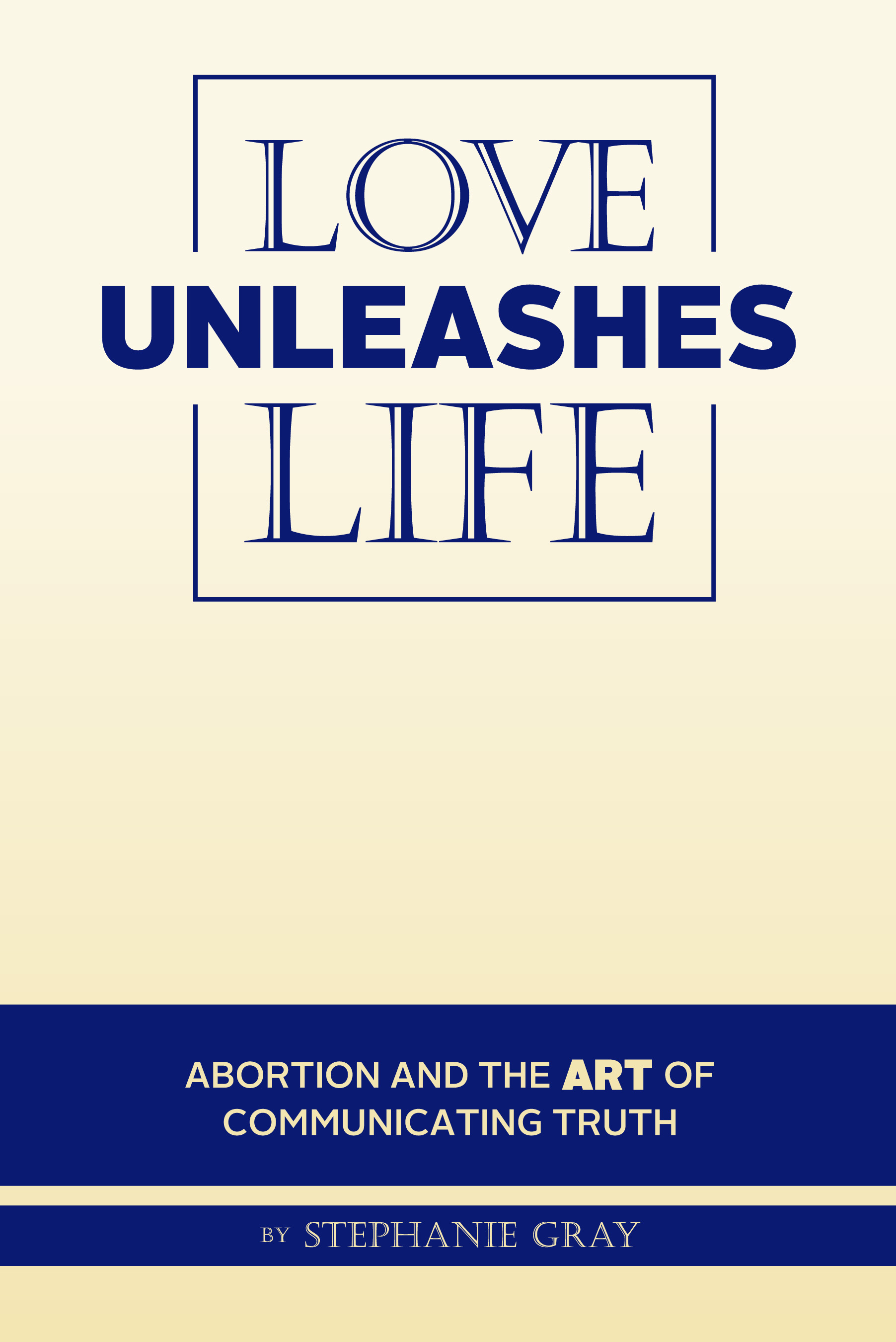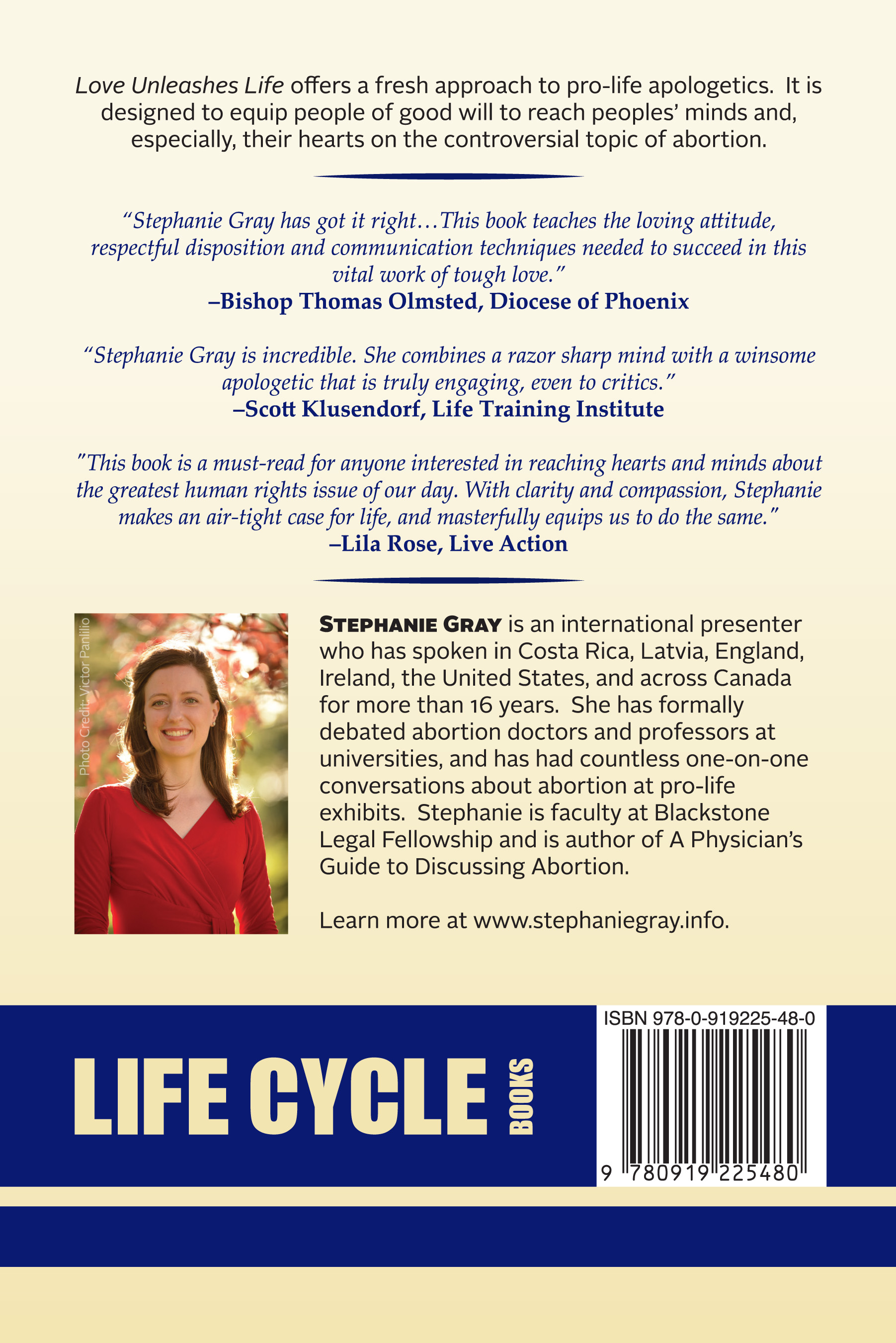I didn’t go to a coffee shop today intending to give my Bible away to one patron, debate abortion with another patron, and talk with a third patron about the conversation with the second, but as it should happen, instead of my intended plan of studying Christopher Kaczor’s book The Ethics of Abortion, I found myself engaging three strangers.
It’s funny how life unfolds. The first man, Phil, placed the coffee shop’s newspaper in front of himself at the long table I too was sitting at. When he turned around to get his coffee, another patron grabbed the unmanned newspaper so that when Phil returned, “the case of the missing paper” became an opening for small talk. Phil was on a break and the chatty type. I decided that I shouldn’t be so attached to my plans that I couldn’t be flexible and spare a few moments to speak with a stranger.
“Day off?” he asked me.
“No,” I said. “I work from home when I’m not travelling and decided to make my office a coffee shop today. You?”
“I’m on a break from where I work at the hospital. What work do you do?” he asked.
“Public speaking,” I said.
Public speaker isn’t the most common job around, and he was intrigued how it could be my job and what audiences I spoke to. When I mentioned speaking at churches he said, “So, you go to church then?”
“Yes,” I said and asked back, “Do you?”
He didn’t. So I took on the persona of Socrates and began asking questions about this, learning that although he had been sent by his parents to Sunday school as a child, that didn’t last long. For a brief period he sent his own children to a preschool that had Christian foundations and was struck when he told his daughter, “Goodnight; I love you” to hear her respond, “And Jesus loves you, Daddy.” But he didn’t identify as a Christian or a church-goer. He simply believed in God in the abstract sense, and in trying to be good. I asked him if he ever read up on different religions and explored the reasons behind the claims made; that, for example, there’s good evidence for Jesus being the God He claimed to be, and not merely a “nice guy” who roamed the earth. We talked for about 10 minutes and by the time his work break wrapped up and he had to leave, I remembered my red, palm-sized New Testament, Psalms, & Proverbs Bible in my laptop bag. The Holy Spirit nudged me and I said to Phil, “Hey, um, I have a Bible with me, why don’t you take it.”
He smiled, received it, and said, “Now I have something to read tonight.”
“Thy word is a lamp unto my feet, and a light unto my path.”-Psalm 119:105
With that, he left. No sooner had I gotten back into work that another patron, a self-proclaimed “Hippie,” saw my spread of a book, highlighter, pen, and notepad and said, “Are you a student?”
“No,” I said.
“You look like one, with the highlighter,” John responded.
“Well,” I said, “I’m like a teacher you could say. I give talks and I’m preparing for a presentation.”
“What do you speak on?” he asked.
“Abortion,” I said, purposefully leaving out my position in order to let him ask. And he did.
“Do you speak in favor of it or against?”
“Against,” I said, which was taken as an invitation for him to go on a loud diatribe against pro-life.
We debated for about 10 minutes, with him making the usual arguments in favor of abortion: “I believe in a woman’s right to control her body,” he said. “One thing I’ve learned,” he declared, “is you don’t tell a woman what to do.”
So I asked, “Would you tell a woman what to do after birth?”
“What do you mean?” he said to my intentionally vague question designed to get the wheels turning in his mind, to get him to think and process his rhetoric.
“Well,” I explained, “If a woman wanted to kill her child after birth, such as drowning her child in the bathtub like we’ve heard on the news, would you say you can’t tell a woman what to do then?”
“That’s different,” he boomed to what seemed to be the whole café. Although he started the conversation, he showed no interest in a rational, two-sided exchange. So I mostly asked questions to be faced with him cutting me off.
When he justified his position on the grounds that the “law says so,” I asked, “Didn’t the law once say that I as a woman couldn’t vote?”
“Yeah,” he said. So I responded, “Isn’t that proof the law can be wrong?” Boom, he went off on another tangent.
And when he spoke of his son and daughter being the most important people to him, I asked him, “Since they are so important to you, when did their lives begin? Wasn’t it their bodies in their mom’s body? So if they’re important to you now, wouldn’t they be important to you before birth?” Off on another tangent he went.
“We get wise by asking questions, and even if these are not answered, we get wise, for a well-packed question carries its answer on its back as a snail carries its shell.” -James Stephens
As it should happen, out of the corner of my eye another patron, down at the end of the table, was listening in. When John and I exchanged names, shook hands, and John left, this third man, Kevin, said,
"I just have to say you were remarkably patient with that man.” Kevin had listened with much fascination to our whole exchange. He was tempted to jump in and point out in the third trimester the baby has brain activity, which gave me an opportunity to enlighten this kinder, more “open” man, that at six weeks, in the first trimester, brain waves have been detected in the pre-born child. “Thanks for telling me that,” Kevin said, “I did not know that.”
“Your big opportunity may be right where you are now.” -Napoleon Hill
So wherever you are, and whatever comes up, my experience today has taught me to welcome interruptions, for you never know what opportunities lie in wait to share truth, goodness, justice, virtue, and Christ.











